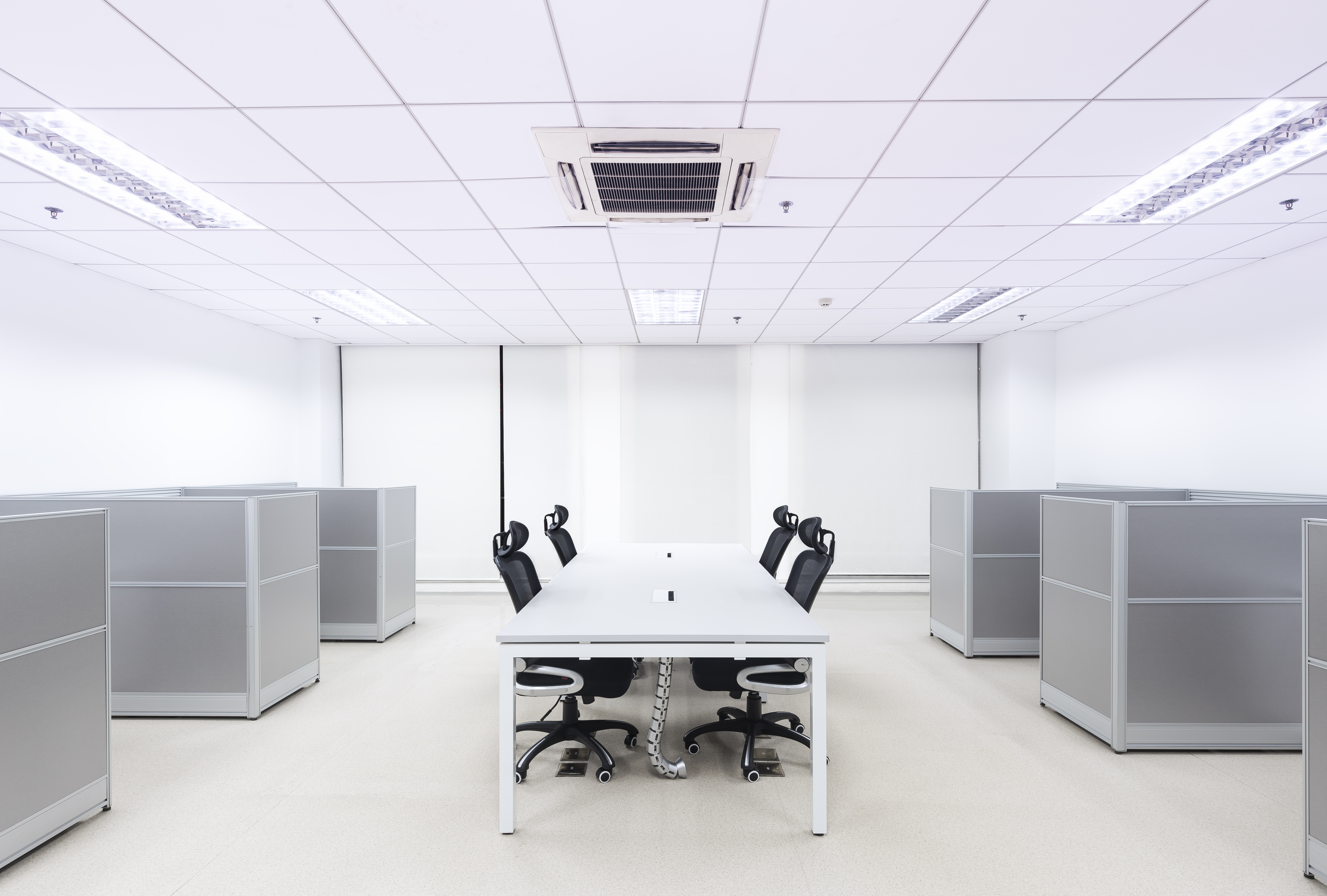Workplace air conditioning
Contents |
Introduction
The responsibilities of an employer regarding workplace temperature during summer is as important as during the warmer months. Failure to ensure a stable temperature can lead to an unproductive workforce as well as causing health issues, as a result of dehydration and other heat-related conditions.
Thermal comfort, the state of mind in terms of whether a person feels hot or cold, will also have an impact on workers' happiness. For more information, see Thermal comfort.
Workplace temperature is an important factor to monitor and manage, for both the safety and comfort of employees. Normal operating temperatures for workplace environments are vital to continued productivity.
Indoor conditions requirements
An indoor workplace requires a temperature that is regarded as ‘reasonable’. This is typically a temperature in the region of 15°C or slightly lower if there is strenuous work taking place [reference required 13 to 16°C are minimums not recommendations see Thermal_comfort_in_buildings#Regulation https://www.designingbuildings.co.uk/wiki/Thermal_comfort_in_buildings#Regulation].
Where air conditioning cannot be placed in a work environment – such as in an environment which requires a specific temperature for manufacturing processes – then fans should be used to ensure appropriate air flow. Sufficient space should also be provided to ensure freedom of movement.
Advantages and disadvantages
Many studies show that increased temperature can have a direct impact on productivity. Heat can make workers feel hot and sluggish. The warmer weather is also a disadvantage for hay fever sufferers - with running eyes and general discomfort having a direct impact on their productivity. A comprehensive air conditioning system allows for windows to remain closed throughout the summer and helps protect those suffering from the pollen of the outdoors.
As heat can increase moisture levels, which in turn leads to more mould and mildew forming. This can add to maintenance costs as well as potential respiratory issues for staff [reference required, condensation tends to form in colder, not warmer environments].
On the other hand, air conditioning can also dry out the work environment which can cause throat irritation and problems for workers who wear contact lenses. Also, extreme temperature changes from the outdoors to indoors can cause issues for workers who need to come and go frequently. Regulating the difference is important to ensure no discomfort in this situation.
Maintenance
Regular maintenance and checks are needed to ensure workplace air conditioning is working at optimal levels at all times. Like any piece of machinery, air conditioning needs to be checked and worked on to ensure performance is not affected at peak times of the year. This is done, amongst other things, to check for clogging due to dirt and debris in the filters and also changing them when necessary.
Overall, an effective and efficient workplace air conditioning system is integral; both to ensure maximum comfort and productivity in the warmer months of the year.
--Heritage Heating and Cooling 13:39, 21 Aug 2017 (BST)
Related articles on Designing Buildings Wiki
- Air conditioning.
- Air conditioning in non-domestic buildings.
- Cooling systems for buildings.
- Heating.
- Indoor environmental quality.
- Thermal comfort.
- Thermal pleasure in the built environment.
- Underfloor air conditioning at London Grade II listed landmark.
- Wellbeing and buildings.
- Workplace humidity.
Featured articles and news
Reform of the fire engineering profession
Fire Engineers Advisory Panel: Authoritative Statement, reactions and next steps.
Restoration and renewal of the Palace of Westminster
A complex project of cultural significance from full decant to EMI, opportunities and a potential a way forward.
Apprenticeships and the responsibility we share
Perspectives from the CIOB President as National Apprentice Week comes to a close.
The first line of defence against rain, wind and snow.
Building Safety recap January, 2026
What we missed at the end of last year, and at the start of this...
National Apprenticeship Week 2026, 9-15 Feb
Shining a light on the positive impacts for businesses, their apprentices and the wider economy alike.
Applications and benefits of acoustic flooring
From commercial to retail.
From solid to sprung and ribbed to raised.
Strengthening industry collaboration in Hong Kong
Hong Kong Institute of Construction and The Chartered Institute of Building sign Memorandum of Understanding.
A detailed description from the experts at Cornish Lime.
IHBC planning for growth with corporate plan development
Grow with the Institute by volunteering and CP25 consultation.
Connecting ambition and action for designers and specifiers.
Electrical skills gap deepens as apprenticeship starts fall despite surging demand says ECA.
Built environment bodies deepen joint action on EDI
B.E.Inclusive initiative agree next phase of joint equity, diversity and inclusion (EDI) action plan.
Recognising culture as key to sustainable economic growth
Creative UK Provocation paper: Culture as Growth Infrastructure.
Futurebuild and UK Construction Week London Unite
Creating the UK’s Built Environment Super Event and over 25 other key partnerships.
Welsh and Scottish 2026 elections
Manifestos for the built environment for upcoming same May day elections.
Advancing BIM education with a competency framework
“We don’t need people who can just draw in 3D. We need people who can think in data.”

























